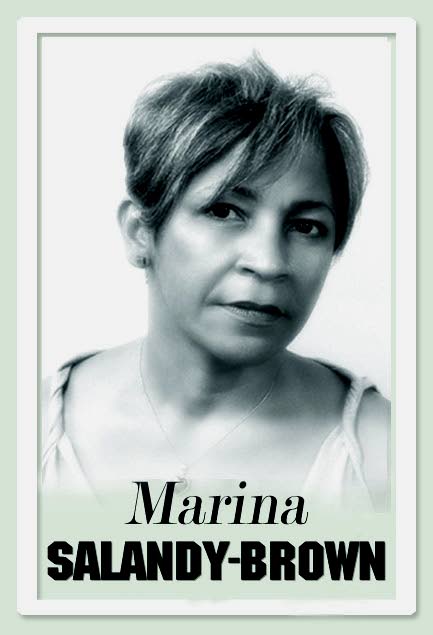‘Disunity is seldom strength’

The president of France Emmanuel Macron believes that disunity is not necessarily a force for good, to paraphrase his argument. He was speaking this week about the rise of the far right in Europe as new EU elections loom, and about what he dubs the “project of disunity”, which he believes the ever more popular nationalist parties are engaged in.
He might approve then of the sentiment of our national motto, “together we aspire, together we achieve”, but he would be disappointed to find that it remains an ambition here, a work in progress, an achievement that is irritatingly elusive. Some of the opinions shared in a discussion last week at the NGC Bocas Lit Fest about equality in our society echoed Macron’s comments on a divided society. Similar observations were voiced, too, in another festival panel about Capitalism and Slavery and the remains of that fateful episode of our history when we were fully integrated into an early period of globalisation.
Slavery and colonial rule bred inequality and disunity and they are proving extremely difficult to overcome. That is hardly surprising when the most successful project of disunity in the history of mankind was the triangular trade. At the heart of the project was “the othering” for financial gain of uncountable millions of people who all shared the same skin colour but whom modern science tells us are more distinct from one another than from any other physically identifiable ethnic group. The trade was a complete system, existing for three centuries, practised by all of Europe that involved both the north and south of the continent of the "‘new world" and many parts of Africa. It was underpinned by economic policy, political rhetoric, scientific baloney, social manipulation, religious instruction, trade agreements, engineering research and development, including the design and manufacture of instruments of torture. Then the carving up of the African continent between European powers, ignoring the existence of people united by culture and history, during the 19th and 20th century is legend for the disastrous fall out of the under-development of that entire continent and a post-colonial history of war, famine and poverty.
The point of departure for the Crusades, the historic Islamic jihad and other barbaric religious wars was always the very differences between peoples and their beliefs, although the objective was to bring non-believers into the fold and unify them. The Holocaust – the attempted destruction of the Jewish people – is within the actual experience of some people still alive today and is the most potent memory of what horrors Europeans are capable of and of the politics of division. And lest we forget, I should mention WWI and WWII, which together ended with the slaughter of hundreds of millions of people; and in the 1990s, the Balkans war of attrition in the wake of the collapse of that other project of disunity, the cold war.
The European project to prevent division in the historically bellicose, multi-ethnic, multi-lingual, deeply regionalistic continent of Europe through the structure of the European Union is a very sensible one. The experience of the enormously difficult task of British withdrawal from the union is an indication of just how thorough the bureaucratic and organisational cementing of the union has been. Europe’s unity project is therefore threatened more by the struggle between ideologies of left-right politics that is becoming dominant on the continent. Both sides of the political divide argue that they seek more or less the same outcomes but their method of achieving it is diametrically opposed to each other’s. The result is a lack of faith in politicians and elections. It took a long time, and the economic arguments won out eventually but if three centuries of the slave trade that enriched Europe and funded its development could be dismantled why not democracy as we know it? All empires fall eventually.
We must be careful not to discourage dissent, not least because we may be unified in an abomination, and in that case disunity is definitely not a weakness. It is becoming increasingly evident that people worldwide are rejecting the norms of the last half a century, for good or ill. Current international political developments present unforeseen challenges as conventional political parties grow weaker - consider the implosion of the conservative party in Spain’s recent elections. Consider the unorthodox way leaders conduct politics, with Mr. Trump’s tweeting government policy, and the use by politicians and foreign governments of social media to manipulate voters. Who would have believed that the great British parliament could be plunged into such extraordinary crisis as to render it inert and the prime minister powerless? The deep divisions in Venezuela that threaten us here in TT are a signal of the world we live in.
Marina Salandy-Brown
13.5.19


Comments
"‘Disunity is seldom strength’"